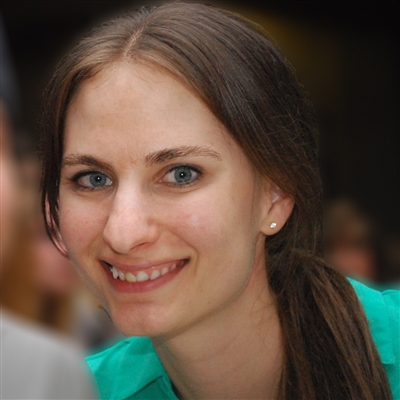Emily Blegen

Class Year:
2007
Job Title:
Graduate Psychologist, Sioux Falls Veterans Affairs
Areas of Study:
History, Psychology
What made you decide to become a History major at Lake Forest College?
I had done my research and knew that a history degree would be versatile. A history degree provides a plethora of skills: the ability to conduct research, write without bias, critically think, understand the world’s historical roots, and present a persuasive argument. I felt these skills would be generalizable and ultimately allow me to go into a number of directions (e.g., law school, business, media, teaching).
You majored in History and yet became a Psychologist. Describe how these two areas of study were able to complement each other.
Both history and psychology require the basic skills as noted above and require a person to use those tools to guide and inspire. Psychologists and historians use scientific methodology in research and application. In psychology, I use history to increase knowledge of behavior, beliefs, injustice, and self or other understanding to improve society through helping people make informed judgments or to make decisions concerning the status of a person. I journey into people’s histories, frequently write historical perspectives, and sometimes I have the honor to work with a client to re-write his or her history. Just as a history degree at LFC prepares a student to take on multiple roles, a psychologist takes on multiple roles, which can include researcher, professor, therapist, writer, consultant, diagnostician, director, and program developer. Both fields require a personal commitment and lifelong effort to act ethically, reduce bias, respect the dignity and worth of all people, and respect differences. Through the study of history and psychology, we learn what is possible, and we learn to push through the uncomfortable, the painful, while embracing the good; toward knowledge and meaning in our life and in the lives of others around us.
Can you describe a History professor who had a particular influence on you?
To my naïve surprise, the quality of my writing coming into freshman year was less than stellar. During my first semester at LFC, in my first history class, I earned a D on a three-page paper. I recall being disappointed in myself and a bit angry at the professor; did he not know that I read all the pages assigned and my paper was just fine?! When I went in for my first open office hour with the professor (Dr. Steve Rosswurm), I was caught off guard. Instead of making me feel like a failure (which was what my anger was masking), Professor Rosswurm created an atmosphere of non-judgment. He spent time going over some basic writing skills and allowed me to rewrite my papers for much needed feedback and a very nominal improvement in my grade. He did not give me what I wanted (that is, an A on every paper), but he gave me the gift of what I needed. I learned to put in the work to improve, to be open and honest with people, to ask for help, and to stick with things. Thank you, Dr. Rosswurm!
Tell us about a piece of work for a History course that stands out in your memory as particularly challenging or rewarding.
My junior year as a history major required me to write a major paper about anything history-related. I wrote about the 1992 Los Angeles riots, and from my recollection, it was the first time where I created something I was, and still am, very proud of. I think of this paper now because it was a turning point in my life; I found a spark for sorting out muddled facts and advocating for a fair perspective. I look back on the paper, especially with the recent news about the riots in Ferguson, Missouri, and I still feel the command of my words. I share the last two sentences of my paper now, “Maybe time has blurred what happened in 1992, but those contributory factors which led to the riots have not fixed themselves. Neglecting these facts will only increase the
probability that Los Angeles and the United States of America will be surprised by yet another riot.”
In what ways did being a history major help you after graduation?
After LFC, I earned my master’s degree in clinical psychology with an emphasis in marriage and family therapy from Pepperdine University. During my time at Pepperdine, I had the opportunity to earn individual, couples, and group psychotherapy experience as a therapy practicum student at a medical center in Culver City, CA and next at a youth center in South Los Angeles, CA. I also worked as a graduate teaching assistant at Pepperdine and as a part-time tutor for high school students. After earning my M.A., I earned a doctoral degree from the Minnesota School of Professional Psychology. During my doctoral years, I gained clinical assessment experience in the neuropsychology department at a large Minnesota hospital, further trained in assessment and therapy at a county government mental health center, and assisted in rehabilitation research. In addition, I conducted my own research on major and minor depression in the rural elderly population, orally presenting my scientific findings at an international conference and authoring a journal article that was recently accepted for publication. During my doctoral years, I also spent time as an adjunct psychology professor at a local community college. After completing a doctoral psychology internship at the Sioux Falls Veterans Affairs Health Care System, while coaching the local girls’ high school hockey team, I accepted a permanent position at the Sioux Falls VA. A history degree from LFC set the stage for the rest of my life. An academic pursuit is what you make of it. Enjoy the journey, work hard, and have fun!

